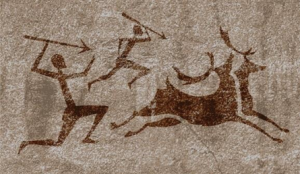Health Q & A is a LKN Connect Health & Wellness column published every two weeks. The readership is invited to submit questions falling within the fields of health promotion, wellness, and disease prevention. Content areas can include nutrition, diet, weight loss, supplementation, fitness, exercise, stress and anxiety, ancestral health, and epigenetics among others. Please direct questions for Health Q & A directly to Wayne Coolidge wayne@healthydynamic living.com
Q: Rene M. Asks: How many pounds of fat can I lose in a week if I cut 500 calories a day?
 A: The simple text-book answer is one pound. The number of calories that your body uses each day at total rest (resting metabolic rate) plus the calories your body uses during voluntary activity throughout the day are added together to determine that day’s caloric expenditure. If you eat 500 calories less than your daily energy expenditure in a day you will lose 2.3 ounces of stored body fat. Multiply that by 7 (days) and you get 16 ounces, or a pound. A 3,500-calorie deficit over 7 days should result in losing a pound of fat in that week.
A: The simple text-book answer is one pound. The number of calories that your body uses each day at total rest (resting metabolic rate) plus the calories your body uses during voluntary activity throughout the day are added together to determine that day’s caloric expenditure. If you eat 500 calories less than your daily energy expenditure in a day you will lose 2.3 ounces of stored body fat. Multiply that by 7 (days) and you get 16 ounces, or a pound. A 3,500-calorie deficit over 7 days should result in losing a pound of fat in that week.
I expect that body weight lost at that rate of a pound per week will be primarily fat. You can’t always count on the 3,500-calorie rule resulting in a pound of fat loss. If for example you multiply caloric restriction times 5 to a 17,500-calorie weekly deficit the math says that you could expect a 5-pound weight loss. Don’t count on it!
You may recall a previous LKNConnect article Severe Caloric Restriction will Result in Poor Health and Fat Loss Failure where I point out the dangers of severely cutting calories.
Slow down to lose weight faster
 Fat loss success depends on a variety of different and potentially conflicting metabolic factors. These factors become more complicated and potentially counter-productive as fat loss attempts take on more extreme measures. There is a saying that I share with fat loss clients. When it comes to safe, lasting fat loss I ask then to slow down and go faster.
Fat loss success depends on a variety of different and potentially conflicting metabolic factors. These factors become more complicated and potentially counter-productive as fat loss attempts take on more extreme measures. There is a saying that I share with fat loss clients. When it comes to safe, lasting fat loss I ask then to slow down and go faster.
Q: Janice W. Asks: Why did our ancient ancestors think eating meat was a good idea even though they could have just eaten plants?
A: A large proportion of our paleolithic ancestors lived near large bodies of water (coastlines) and harsh environments due to periods of glaciation. In other words, our ancestors lived where food could be easily procured.
 Plant matter consumed 10,000 years ago was very different, and scarce, compared to today’s agriculturally raised vegetables. The environment played a role in the need for meat to sustain the worlds hunter/gatherer population because it could be dried, sometimes salted, and easily preserved.
Plant matter consumed 10,000 years ago was very different, and scarce, compared to today’s agriculturally raised vegetables. The environment played a role in the need for meat to sustain the worlds hunter/gatherer population because it could be dried, sometimes salted, and easily preserved.
The environment allowed many populations a small window of opportunity for plant gathering, perhaps 2–3 months in some locals. It would have been impossible to preserve enough plant matter calories to allow our ancestors to survive winters. Our ancestors didn’t just think eating meat was a good idea, it was necessary for survival. For that reason, combined with the element of time, meat consumption is very compatible with our human genome. Many present-day health issues blamed on meat really results from the preservative, omega 6, hormone, antibiotic, GMO and dye laden meats consumed at this time.
 Wayne Coolidge, Jr., M.Ed., CHES is an author, speaker, and innovative Health Promotion Scholar-Practitioner. He owns Wayne Coolidge Health Promotion, a consulting firm specializing in healthy aging, nutrition, nutritional supplementation, fat loss, fitness, and disease prevention. His expertise is designing lifestyle-optimization strategies leading to positive genetic expression, controlled cellular aging, health, and wellness. He has accumulated more than 31,000 hours of one-on-one training and personal consultation experience over a 36-year career. You can email him at wayne@healthydynamicliving.com.
Wayne Coolidge, Jr., M.Ed., CHES is an author, speaker, and innovative Health Promotion Scholar-Practitioner. He owns Wayne Coolidge Health Promotion, a consulting firm specializing in healthy aging, nutrition, nutritional supplementation, fat loss, fitness, and disease prevention. His expertise is designing lifestyle-optimization strategies leading to positive genetic expression, controlled cellular aging, health, and wellness. He has accumulated more than 31,000 hours of one-on-one training and personal consultation experience over a 36-year career. You can email him at wayne@healthydynamicliving.com.
The views, thoughts and opinions expressed by our writers
belong solely to them and do not represent
LKNConnect.com, its publisher or its staff.



